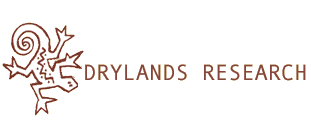
Drylands Research Working Paper 34
Kano has long been a great centre of demand for food that elicits spontaneous responses from farmers and traders over a wide territory. This paper examines the nature of this response from three perspectives: of price movements for staple food grains and livestock; the experience of traders who mediate the exchange of these commodities; and the effects of severe rainfall variability and official polices on food prices and trade. Holding constant the amount of rainfall and politics, price appears to be the most important variable to which farming and trading activities in the Kano region are sensitive. When price levels were attractive and stable, farmers increased production and traders evolved a sophisticated form of trade organisation through which they patronised regional and distant markets for food commodities. The sensitivity of prices to macroeconomic policies is underscored by the profiles of staple food prices in Metropolitan Kano markets. The profiles feature periods of relative stability and wide fluctuations that represent policy epochs in Nigeria. The upward swing in food prices in the 1970s and through to the mid-1980s was first precipitated by the great drought of 1972-73 and then by huge public expenditure and massive rural-urban migration which characterised that period. However, the rise in the prices of locally produced food commodities was attenuated by the massive importation of grains and meat. The Structural Adjustment Programme, instituted between 1986 and 1998 in order to reverse the interventionist policies which had distorted the economy, initially stimulated food prices and production. However these positive effects could not be sustained owing to persistent hyperinflation that reduced peoples purchasing power and crippled industrial demand for food raw materials. The spontaneous response of farmers and traders to price incentives suggests that price stabilisation is a key to sustainable long-term change. Thus what is required is the creation of favourable macroeconomic conditions that enable positive externalities to flow from one economic sector to another for the overall development of the region and the nation. In this regard inflation control by strengthening the national currency, and lowering the interest rate, are imperatives for stabilising prices and creating an environment conducive to investment. In addition, Nigerias nascent democracy should be nurtured to guarantee uninterrupted access to the nations potentially huge market.